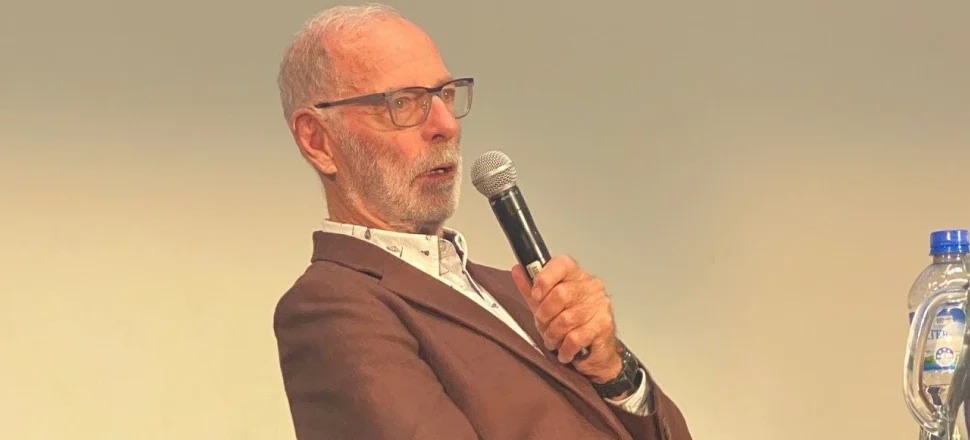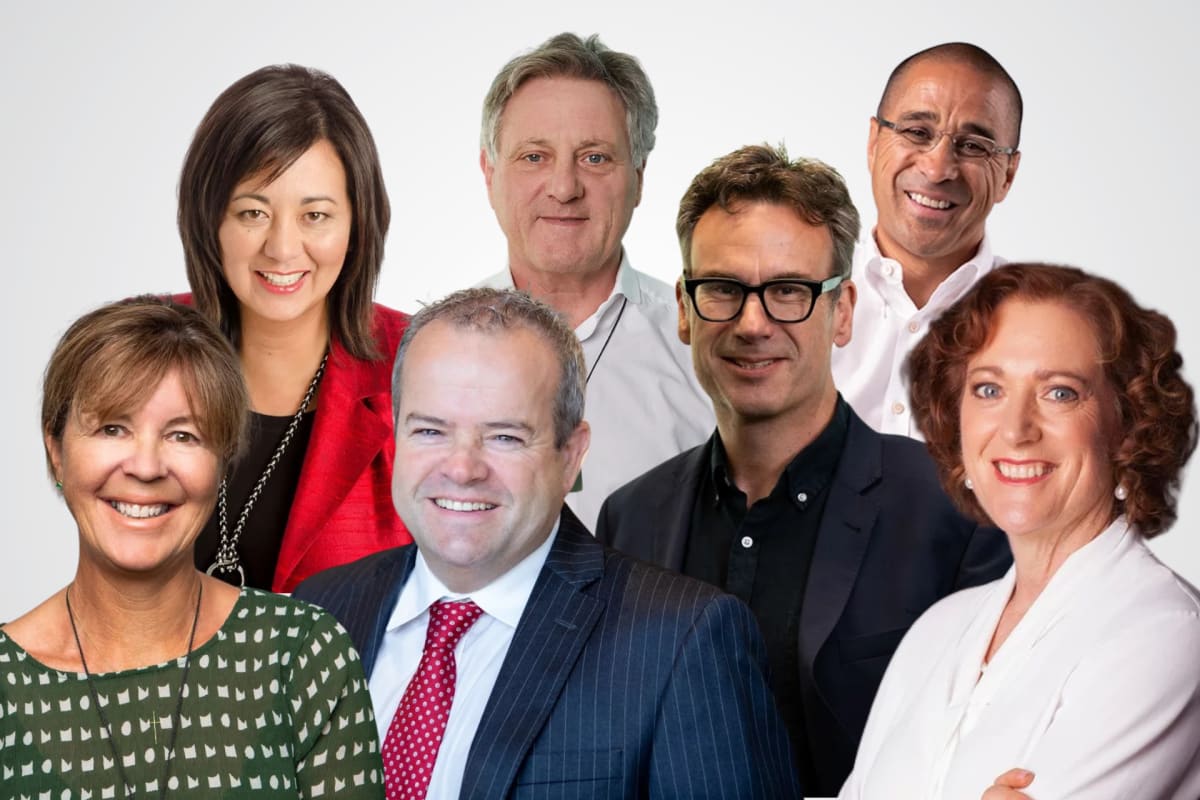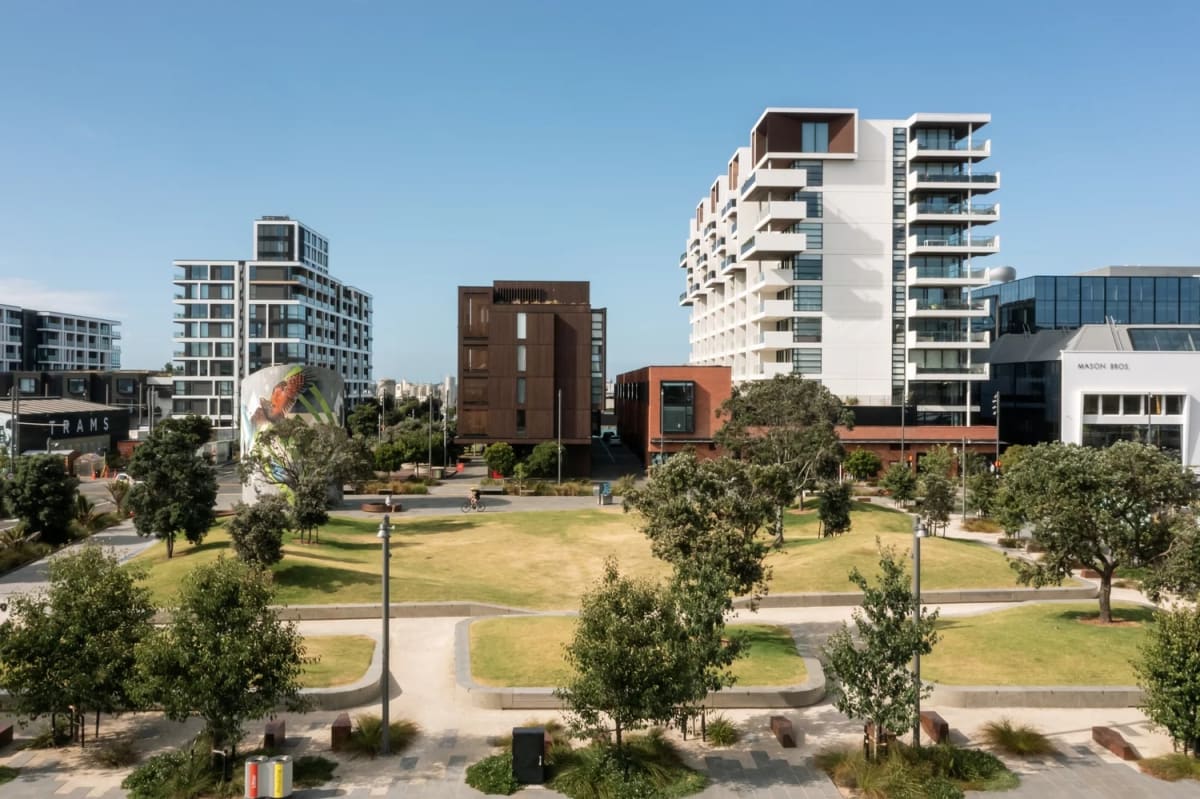
Wayne Brown's campaign put a lot of emphasis on what he didn't like. Newsroom explains what some of the incoming mayor's least favourite council-controlled organisations do.
Everyone knows Auckland’s Mayor-elect Wayne Brown aka 'The Fixer' has a visceral hatred of road cones and wants to stem wasteful council spending, but who exactly is he going to war with?
Brown’s “shock” at the value for money ratepayers get from council-controlled organisations follows an independent review of council-controlled organisations (CCOs) carried out by Miriam Dean KC in early to mid-2020.
The report suggested if all 64 recommendations were adopted (and they were unanimously), it could save as much as $67m in a decade.
The most relevant recommendation was a merger of Regional Facilities Auckland and Auckland Tourism, Events and Economic Development into a single entity by December 1, 2020.
Dean’s team said the essential purpose of the merged organisation would be to “make Auckland the preferred city in which to live, work, visit, invest and play”.
The resulting entity is high on Brown’s hit list, but probably behind his well-covered beef with Auckland Transport.
Auckland Unlimited
Labelled a “travel agency” and “a sprawling empire” by the incoming mayor, Tātaki Auckland Unlimited manages and invests in Auckland’s events, stadiums, cultural assets and economic development.
The sprawling empire’s responsibilities include Auckland Art Gallery, Auckland Zoo, Auckland Maritime Museum, function facilities such as Aotea Centre, as well as bidding for conferences and business events.
It is the economic and cultural agency for Auckland. It promotes the region globally to attract visitors, talent and investment, provides economic intelligence and works with sectors and businesses to ensure the region has the skills it needs.

Brown believes it needs to be refocused on its top priorities but hasn’t yet called for a mass exodus of its board.
The CCO is funded through commercial revenues from stadiums and cultural venues, alongside user charges at the Auckland Zoo and the Auckland Art Gallery. The remainder of costs are funded through general rates.
The council set aside $73m for capital expenditure and $263m in operating expenditure for economic and cultural development in its 2022/2023 budget.
Auckland Unlimited is chaired by professional director Mark Franklin, carried over from ATEED. Franklin is a former construction materials executive and a former director of Vector and Kiwirail.
Its deputy chair is Aktive chief executive Jennah Wootten.
The CCO is headed by chief executive Nick Hill, also a stay over from ATEED. Hill was previously ComCom’s chief executive and has consulting, sport and energy sector experience.
Eke Pānuku Development Auckland
One of Brown’s first actions as mayor was to call on the chair of Eke Pānuku to resign, a request he widened to its entire board later in the week.
Eke Pānuku is Auckland Council’s urban regeneration and property development arm which Brown, a property developer himself (at times), believes competes with the private sector but with the benefit of ratepayer dollars.

He said it received millions for ratepayers each year and returned very little in exchange.
The CCO is responsible for overseeing the renewal of the Wynyard Quarter and Westhaven Precincts, as well as town centres such as Panmure, Northcote, Manukau, Hobsonsville Point and other areas.
Its other activities branch from the operation of Westhaven Marina, the Southern Hemisphere’s largest recreational marina and an asset or regional significance, through to the development of housing. It manages $2.4b of property assets for the council.
Eke Pānuku’s capital investment in upgrading its portfolio of suburban centres is funded through the sale of properties and rates, with investment to upgrade the CBD supported by the City Centre Targeted Rate.
The council’s 2022/2023 budget set aside $113m in capital expenditure and $134m in operating expenses for city centres and local development.

Conflicts
Eke Pānuku has been marred with claims of conflicts of interest, with a PwC review into its operations at board level kicking off earlier this month.
Its board is made up of seven individuals, chair Paul Majurey, David Kennedy, John Coop, Susan Huria, Kenina Court, Jennifer Kerr and Steve Evans.
Majurey has a governance role in the Marutūāhu Rōpū, comprised of five North Island iwi groups.
A high-density housing project adjacent to the Avondale Racecourse was recently awarded to a joint venture between developer Ockham and Marutūāhu.
Ngāti Whātua Ōrākei, which also made a bid for the development, said it hadn’t been told of Pānuku’s density preference for the site. Chair Michael Stiassny believed this could have created an advantage for parties with inside knowledge of density objectives.
Ockham had previously told Newsroom Majurey had declared his interest at the outset and had been excused from all related discussions at board level.
Majurey refused to follow in the footsteps of Auckland Transport chair Adrienne Young-Cooper and resign to make way for Brown’s yet undeclared plans.
On Friday he published a letter to staff on the Eke Pānuku website referring to Brown’s intentions for the CCO, in which he essentially told staff any change would have to come from the council itself, not just the mayor.
Notable interests of other directors include Coop, managing director of architecture firm Warren and Mahoney, which is big on public spaces, and Evans, chief executive of Fletcher Building’s Residential and Development division, which has developments across Auckland.
Kennedy is on the board of Naylor Love Construction and chair of property developer Kaha Ake, a joint venture between Classic Group and NZ Super Fund.
A spokesperson for the mayor-elect said he would address his exact grievances with the CCOs in a series of statements over the next two weeks.







